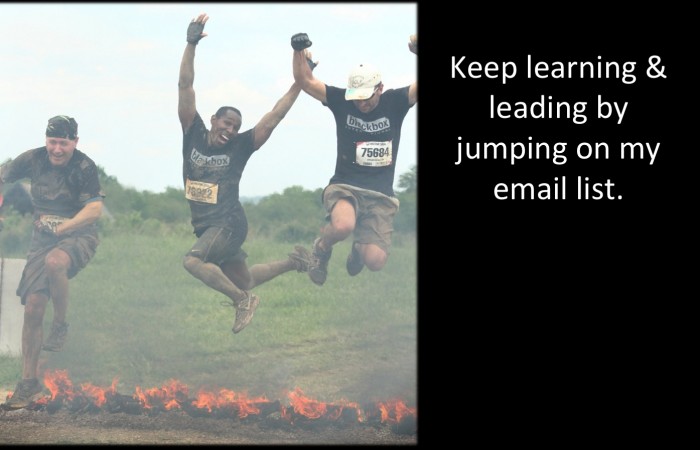Christian Posture
Written by Brian Jennings, Posted in Blog, Your World
What is your posture to the world? While we may not be too great at evaluating our own posture, we definitely notice the posture of others. I’m not writing this to make you sit up straight (although you probably are now that I mentioned it). I invite you to consider the attitude you project to the world.
Do they see the arrogance of Gaston?
Or the annoyance of Stanley?
Or is it more like this?
Here’s the question: is your posture puffed-up or knelt-down?
DEFIANCE
Be careful to live properly among your unbelieving neighbors. Then even if they accuse you of doing wrong, they will see your honorable behavior, and they will give honor to God when he judges the world.
(I Peter 2:12)
We face a dangerous temptation to promote the cause of Christ without the posture of Christ, which results in a distorted view of Christ.
Peter calls us to live properly. It is right and Godly to defy the government at times. Daniel defied the government by praying. His buddies defied the government by refusing to bow to a statue. Peter and John defied the government by continuing to preach the Gospel. Jesus defied the government by calling us to follow him as Lord. But what was the posture of their defiance? Do you see puffed-up chests? Antagonizing words?
If you must defy authorities, do so properly – with gentleness, kindness, and respect. In doing so, your posture will honor God and invite your detractors to grace.
Do you want your detractors to discover the grace of God or have their suspicions against you confirmed?
WIELDING POWER & INFLUENCE
The Christians in the early 60s (as in AD 62) knew nothing of the sorts of freedom and influence Christians hold in 2024. In my state of Oklahoma, nobody’s campaign slogan is, “Vote Jackson: a proven, Muslim progressive.” Politicians here market themselves to Christians because they know where to find political power. (Note, I know this might not be true in your setting. Seeing how local politicians market themselves is a clue into the power structures at play in your community.)
I recently had the opportunity to voice a prayer at a formal, secular setting that included people from different faith backgrounds. The invitation for me to pray was kind and thoughtful. I also knew the invitation was not given to those from different faith backgrounds. I thought for a long time about whether it was wise for me to accept the invitation. I wondered if this was an opportunity I should not miss. However, I concluded that this time it was right for me to pass on the gracious opportunity (and the folks who invited me were gracious again in their response). Some fellow Christians will think it’s crazy and maybe even wrongheaded that I passed. However, they aren’t thinking about the people on my mind: my Buddhist, Hindu, and unbelieving friends with whom my family has just recently developed relationships and trust.
To be clear, I ask guests in our home if I can pray before meals, and I usually ask if they would like me to pray about anything going on in their lives. I’ve prayed for the sick, the hurting, friends, and complete strangers. If I’m ever told I can’t pray without going to jail, I’ll join the likes of Daniel. I actively share my faith, pray for others, and have pledged unyielding loyalty to Christ. Just a few days ago I saw a dude shooting baskets by himself at a park. I walked over, introduced myself, complimented his sweet left-handed jumpshot, and invited him to play ball with some friends in our church. I’m compelled to do these things.
Because I desire to share Christ to our world, I must also consider how I wield power (whether it be large or small). Power-wielding reflects posture and attitude. In the situation I faced, I chose to try to share Christ from underneath, as opposed to top-down. I wanted those folks to see a posture of humility, gentleness, and proper respect, and I pray this will open doors (or keep current doors open) for me to share Good News with them.
If you drive by multiple church buildings each day, take time to imagine how you’d want to be treated if your were the religious minority. What would make you more or less open to listening to the views of others? What things might offend you? Would you want their religion to be taught to your children without your approval? Would your want their prayers welcomed but not yours.
Future situations will grant you and I choices to make. Some of those won’t be very obvious (like the one I faced – a situation in which other Christians may have chosen differently than me and I would not stand in any judgment), so let’s pray, seek wisdom, and make sure our posture is knelt-down.
PUFFED-UP CULTURE WARS
While thinking about our relationships with other people, Martin Luther said, “A Christian is a perfectly free lord of all, subject to none. A Christian is a perfectly dutiful servant of all, subject to all.”
We have the beautiful freedom to belong to no other person. But we also have the beautiful freedom to serve every other person. That’s freedom in Christ. We can be free, capable, and courageous, but not puffed up.
A term that’s popped over the past decade is culture wars. There are things worth fighting for, but culture warriors declare war against anything in culture they don’t like. You are with them or against them, and if you aren’t with them, they are coming for you.
A segment of the church world embraces the ethos and practices of culture wars. Culture warriors don’t seek justice and mercy through means that honor Jesus, but instead attempt to exert dominance over society by any means necessary.
Culture warring isn’t about persuasion – and that’s what I see in the Gospels. What was Jesus’ posture towards unbelievers? What did his interactions and invitations look like? When the Rich Young Ruler rejected his invitation, he let him walk away. Jesus came to save lost people. Culture warriors attempt to conquer lost people. So if an unbelieving CEO at a secular company with worldly values says something that sounds like an unbeliever, the culture warriors throw a fit, boycott them, demonize them, and throw all kinds of vitriol their way.
Does that increase or decrease the chances of the CEO receiving the Gospel? What about the employees? What about their customers or supporters or casual bystanders?
There’s a big difference between choosing to not financially support a place that harms people and placing a target on everyone who doesn’t believe everything you do.
Rich Villodas helps us diagnose if we’re trapped in a culture war:
- We carry a “God is with us, but not with them” impulse.
- We no longer see image bearers to be engaged, but threats to be eliminated.
- We believe we are fighting for truth, so our hatred is justified.
- We believe political power is necessary to make the most of the gospel.
- Fear is the primary lens through which we see the world.
Does Christian love shape your posture? The enemy of love is fear. God says perfect love casts out all fear, but Christians can be prone to fear. We desperately need to replace our fear with love.
“The crisis with the US church has almost nothing to do with being liberal or conservative; it has to do with giving up the faith and discipline of our baptism and settling for a common, generic US identity” (Walter Brueggemann).
If your identity comes from the Right or the Left or the Fringe or whatever, relocate your heart. Belong with Christ. We are Strangers!
Here’s a filter I beg of you to use:
1-Do the voices I’m hearing want me to fear?
2-Do they want me to hate?
3-Does God want me to live in fear and hate?
4-Should I keep absorbing fear and hate?
Karen Swallow Prior wrote, “When people are jockeying for power, they don’t care which pony they ride. And they will run those ponies into the ground. Break free, beloved ponies.”
Break free from the puffed-up forces vying for your loyalty. Enjoy the gentle embrace of Christ, the warmth of Christian love, the freedom of kneeling down. Reflect the posture of Jesus to a watching world and an observant God. Take up your cross and follow Jesus, knelt-down and free.









